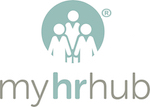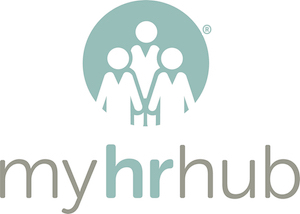As we progress through the government’s roadmap out of lockdown, and the vaccine being rolled out at pace, it feels that life is gradually returning to normal. But what does returning to normal mean for the world of work? For some it will mean an eventual return to the workplace, whilst for others it may mean working from home on a permanent basis.
In this blog post we will be exploring some of the key considerations and obligations you need to be taking into account as you plan your return to the workplace – and to normality.
Health & Safety
Your health and safety obligations as an employer apply to all workers, whether they are based in the workplace or at home.
For the workplace, this means ensuring you have appropriate measures in place to help prevent the spread of covid, for example, one-way systems and floor markers to help with social distancing; hand sanitising stations and increased cleaning regimes, and procedures for staff to follow if they come down with covid-related symptoms.

It is advisable to document this within a covid-secure workplace policy, and to communicate this out to staff so they are aware of the safety requirements in the office and what is expected of them.
You also need to carry out a Covid-19 risk assessment of the workplace(s) to identify areas of risk where covid may be spread and steps you have taken to reduce that risk.
It is advisable to share the risk assessment with employees before they return, so they can see what has been done to help keep them safe at work.
For remote workers, the risk of catching covid from other colleagues is reduced, however it is still a good idea to share the covid-safe workplace policy and risk assessments with them, so they are kept informed and are aware of any onsite safety measures should they need to attend the workplace.
If you haven’t done so already, you need to ensure that anyone working remotely has completed a remote working risk assessment and Display Screen Equipment (DSE) assessment.
My HR Club members and My HR Hub retained clients can also log in to our ‘good to go’ HR portal and download our array of homeworking documentation and policy templates – including a DSE checklist.
Employee Mental Health and Wellbeing
It is likely you’ll have a mix of employees who are eager to get back into the workplace, and some who are more reluctant and may even feel scared about doing so. A recent survey showed that half of employees aged 18-24 want to return to the office full time – whereas only 29% of those over 55 do.
Having a return-to-work discussion and allowing employees to address any concerns with you before they go back to the workplace can really help to alleviate any feelings of anxiety they may have. This can be particularly helpful if you have any employees that have been required to shield during the pandemic.
Make sure you don’t exclude remote workers from the return-to-work discussions – as they may have queries or concerns about working remotely on a permanent basis.
My HR Club members can log in to our website and download the ‘Post-lockdown Return to Work Discussion Form’ from our good-to-go HR portal. Non-members can download it here.
Staggered Returns
Staggering when people return to the workplace can help with the management of social distancing and could help alleviate any concerns staff may have about returning immediately to a jam-packed office.
There are various ways to stagger the return of our employees – some companies have opted for a booking system – allowing employees to choose when and how often they come into the office (or if they come in at all). Others have opted to split the workforce into groups and assign certain days or weeks to a specific group.
Contracts – Varying Terms

Whilst employees may have agreed to work from home on a temporary basis, if you are wanting to change their terms and conditions so they work from home on a permanent basis, then you will need to consult with the employee(s) concerned about this.
It’s advisable to have a home-working policy in place, which covers the obligations of the employee whilst working from home, how they will be managed, standards and expectations, company equipment usage and most importantly, data protection and security.
If both parties agree to the permanent home-working arrangement, you will need to confirm the new terms in writing to the employee, either through an updated contract of employment or through a variation to terms letter.
We have a home working policy template available to download for My HR Club members and My HR Hub retained clients on good-to-go HR portal.
Flexible Working Requests
Even if you decide that everyone needs to return to the workplace, employees are still entitled to submit a flexible working application to work from home, if they meet the eligibility criteria to do so.
Employers must give due consideration to any requests made, especially if the employee has successfully worked from home over the last year, as it may be hard to prove that the business is unable to accommodate the request (bearing in mind the statutory grounds for refusal).
Employees Returning from Furlough
If you are bringing employees back to work from furlough then it is advisable to discuss this with them beforehand, to confirm the date of their return and to allow the employee to ask any questions they may have.
This discussion should be followed up in writing to the employee confirming the arrangements made. In cases where staff have been furloughed for a long period of time, you may wish to consider a “back-to-work induction” to help introduce them back into work, especially if they need training on any new or changed systems or ways of working.
This blog post is not a complete guide and it is important that you ensure you are meeting your legal obligations as you plan the return of your employees to the office.

If you need additional HR advice or support on this topic or any others – the team at My HR Hub & My HR Club are ready to provide support and guidance. You can contact us through our website.
We can provide support on an hourly, ad-hoc, project or retained basis. Please enquire for more information.


Recent Comments